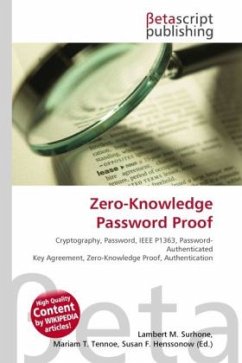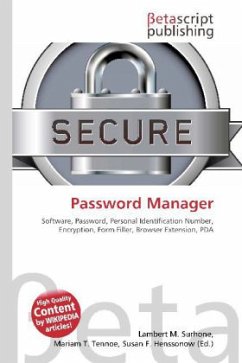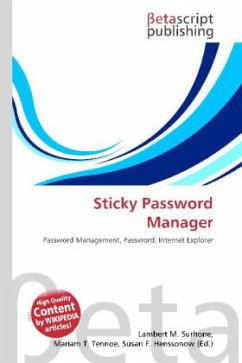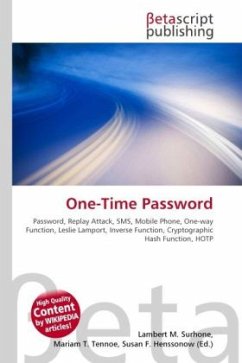High Quality Content by WIKIPEDIA articles! In cryptography, a zero-knowledge password proof (ZKPP) is an interactive method for one party (the prover) to prove to another party (the verifier) that it knows a value of a password, without revealing anything other than the fact that it knows that password to the verifier. The term is defined in IEEE P1363.2, in reference to one of the benefits of using a password-authenticated key agreement (PAKE) protocol that is secure against off-line dictionary attacks. A ZKPP prevents any party from verifying guesses for the password without interacting with a party that knows it and, in the optimal case, provides exactly one guess in each interaction. Technically speaking, a ZKPP is different from a zero-knowledge proof. A common use of a zero-knowledge password proof is in authentication systems where one party wants to prove its identity to a second party using a password but doesn't want the second party or anybody else to learn anything about the password.
Bitte wählen Sie Ihr Anliegen aus.
Rechnungen
Retourenschein anfordern
Bestellstatus
Storno








